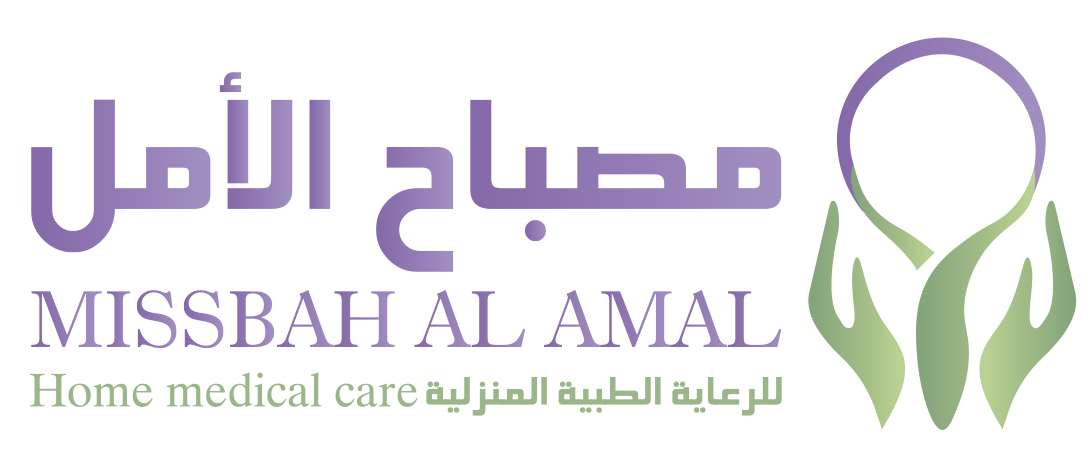Pregnancy is one of the most important stages in a woman's life, requiring special attention to nutrition to ensure the health of both the mother and the child. Requesting nutritional services for pregnant women in Saudi Arabia to follow a balanced diet rich in essential nutrients is vital for supporting fetal growth and development.
In this context, the importance of certain nutrients such as folate, calcium, and vitamin D emerges, as they play a crucial role in enhancing overall health and reducing the risks of health issues associated with pregnancy. By understanding these nutrients and the importance of including them in the daily diet, pregnant mothers can take effective steps toward achieving a healthy and safe pregnancy.
Nutrition Service for Pregnant Women in Saudi Arabia
Nutritional services for pregnant women in Saudi Arabia provide dietary guidelines for the pre-pregnancy period. Nutrition before pregnancy is one of the key factors that significantly affect the health of both the mother and the fetus.
Adopting or maintaining a healthy lifestyle is one of the most important aspects to focus on during this critical phase. Here are some nutritional guidelines related to the pre-pregnancy period provided by nutritional services for pregnant women in Saudi Arabia:
- Maintain a healthy weight: It is essential for women to maintain a healthy weight before pregnancy, as being overweight or underweight can negatively affect the chances of conception and the health of the fetus.
- Follow a balanced and varied diet: The diet should include a variety of foods that provide the body with energy and essential nutrients. This diversity helps support the woman's health during pregnancy.
- Avoid foods high in vitamin A: It is advisable to reduce the consumption of foods rich in vitamin A, such as liver, during the pre-pregnancy planning period, as large amounts may negatively affect fetal health.
- Consume iron-rich foods: It is important to include sources of iron such as meat, fish, poultry, and legumes. Iron is essential for blood formation and supports the mother's health.
- Get sunlight and consume foods rich in vitamin D: Vitamin D is important for bone health, so it is recommended to get sunlight and consume foods like fatty fish, fortified foods, and eggs.
- Eat foods rich in folic acid: Folic acid is vital for the formation of the brain, skull, and spine of the fetus. Therefore, it is important to consume leafy greens, legumes, and grains rich in this acid.
These guidelines from nutritional services for pregnant women in Saudi Arabia help enhance overall health and improve the chances of a healthy pregnancy.
Nutritional guidelines on significant changes related to nutrition that may accompany pregnancy
During pregnancy, women experience a range of physical and psychological changes, and the pregnancy experience varies from one woman to another based on multiple factors such as lifestyle, health status, and age. Nutritional services for pregnant women in Saudi Arabia provide valuable guidance on these changes and how to manage them healthily:
- Weight gain during pregnancy: It is normal for pregnant women to gain some weight due to physical and hormonal changes. However, not gaining enough weight or following a diet aimed at weight loss during this period may negatively affect the health of the mother and her fetus. Therefore, it is important for women to be aware of their nutritional needs. These guidelines from nutritional services for pregnant women in Saudi Arabia help understand the changes that may occur during pregnancy, contributing to making informed dietary decisions that support the health of both mother and fetus.
- Body Mass Index (BMI): The weight gained during pregnancy depends on the BMI before pregnancy. This index is an important tool for determining the healthy weight range that a woman should gain during pregnancy.
Key vitamins recommended by nutritional services for pregnant women in Saudi Arabia during pregnancy
The basic principles of healthy eating remain consistent during pregnancy, focusing on consuming ample amounts of fruits and vegetables, whole grains, lean proteins, and healthy fats. However, certain nutrients require special attention during pregnancy. Here are some of the most important:
- Folate and folic acid: It prevents birth defects related to the brain and spinal cord: Folate is a type of vitamin B that plays a vital role in preventing serious issues affecting brain and spinal cord development, such as neural tube defects. The synthetic form of folate, known as folic acid, is found in dietary supplements and fortified foods. Studies have shown that taking folic acid supplements reduces the risk of preterm birth and low birth weight.
- Recommended dosage: It is recommended to take 400 micrograms of folate or folic acid daily before pregnancy and 600 to 1000 micrograms daily throughout pregnancy.
- Good sources: Fortified breakfast cereals are rich sources of folic acid, along with dark green leafy vegetables, citrus fruits, dried legumes, peas, and lentils.
In addition to making healthy food choices, taking daily vitamins during pregnancy—preferably starting at least three months before conception—can help ensure adequate intake of this essential nutrient. Every woman considering pregnancy should take a daily supplement containing folic acid.
Nutritional services for pregnant women in Saudi Arabia recommend calcium for strengthening bones
Both the mother and child need calcium to strengthen bones and teeth. Calcium also supports the healthy functioning of the circulatory, nervous, and muscular systems.
- Required amount: 1000 milligrams daily; while pregnant teenagers need 1300 milligrams daily.
- Good sources: Dairy products are among the best sources of calcium in terms of absorption. Other dietary sources of calcium include broccoli and cabbage, as well as many fruit juices and breakfast cereals.
Vitamin D to enhance bone strength
Vitamin D works with calcium to help build the child's bones and teeth.
- Required amount: 600 International Units (IU) per day.
- Good sources: Fatty fish like salmon are good sources of vitamin D, along with fortified milk and orange juice.
This valuable information helps raise awareness of the importance of proper nutrition during pregnancy, contributing to the health of both mother and child.
Providing the best diet for pregnant women through nutritional services for pregnant women in Saudi Arabia
Proper nutrition for pregnant women is a fundamental element that should be planned as soon as a woman learns of her pregnancy. The growth and development of the fetus depend entirely on what the mother consumes, necessitating her to take steps to ensure a healthy and safe pregnancy. The child relies on the mother to provide the perfect balance of essential nutrients for its growth and development, even after birth. Therefore, it is essential to establish a healthy dietary schedule for pregnant women that includes all the important nutrients for their health and the health of their fetus.
Fruits and vegetables
Pregnant women should ensure they consume at least five servings of fruits and vegetables daily. These can be fresh, frozen, canned, dried, or juiced, while avoiding those with added salt or sugar. These foods are a rich source of vitamins and minerals that support the health of both mother and fetus.
Starches (carbohydrates)
Starches are an important source of energy, as well as containing some vitamins and fibers that help promote satiety without increasing calorie intake. These foods should make up just over a third of the pregnant woman's diet and include:
- Bread and oats
- Potatoes
- Breakfast cereals
- Rice
- Bulgur
- Pasta
- Corn
Nutritional services for pregnant women in Saudi Arabia emphasize the importance of protein
Protein is an essential nutrient for the child's growth, so it should be included in the pregnant woman's diet. Protein-rich foods include:
- Meat, poultry, and fish
- Beans, lentils, and legumes
- Nuts
Pregnant women should avoid certain types of fish such as raw shellfish, shark, swordfish, and marlin, as they can be harmful during pregnancy or when planning for it.
- Dairy products: Dairy products such as labneh, cheese, yogurt, and milk contain calcium and other essential nutrients that support bone health.
Foods to avoid according to nutritional services for pregnant women in Saudi Arabia
There are some foods that some may consider essential when preparing a healthy dietary schedule, but they are actually unhealthy and should be avoided, including:
- Fats: Fats are high in calories, so consuming large amounts can lead to weight gain, which does not support the pregnant woman's nutritional plan. Saturated fats may also raise cholesterol levels, increasing the risk of heart disease. Foods high in fats or sugars include:
- All spreadable fats (like butter)
- Oils
- Chocolate and cookies
- Pastries
- Ice cream and sweets
- Soft drinks
- Salt: It is important to reduce salt intake during pregnancy, as consuming large amounts can lead to high blood pressure. Although high blood pressure may result from other factors, it is best to avoid salt as much as possible due to its potential risks to heart health and stroke.
These guidelines from nutritional services for pregnant women in Saudi Arabia help ensure that pregnant women receive the necessary nutrition to support their health and the health of their fetus, contributing to a safer and more comfortable pregnancy experience.
It is clear that proper nutrition plays a crucial role in the health of both mother and child during pregnancy. By focusing on consuming essential nutrients, pregnant mothers can enhance their children's growth and avoid many health issues. Commitment to nutritional services for pregnant women in Saudi Arabia not only contributes to improving overall health but also ensures a safer and more comfortable pregnancy experience.




